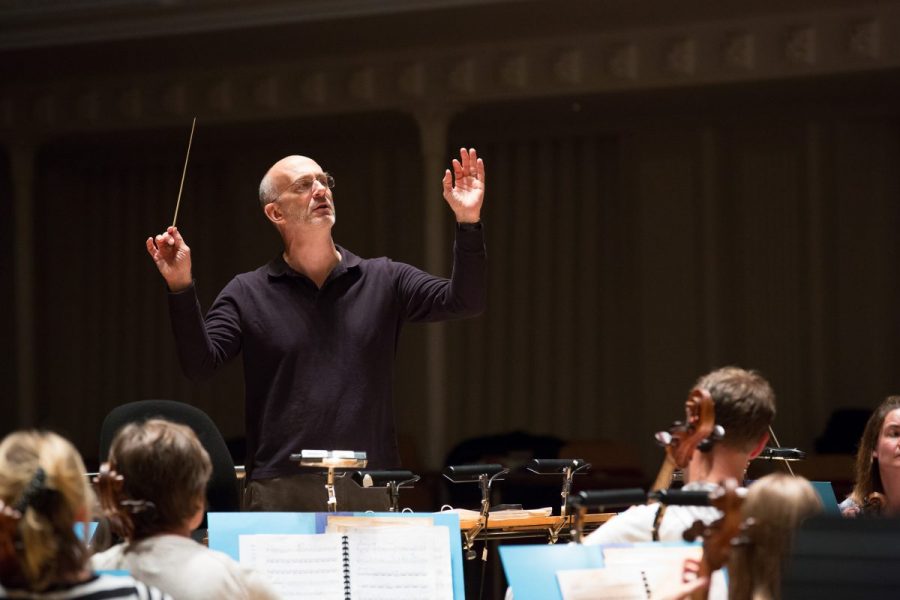Showing @ City Halls, Glasgow, Sat 25 July 2015
Alfred Hitchcock: The Master of Suspense. His is a name that everyone recognises, but would Hitchcock be “HITCHCOCK!” without Waxman, Rózsa, and (of course) Herrmann? Tonight’s performance implies, “probably not”.
Live from the City Halls of Glasgow, the BBC Scottish Symphony Orchestra devote an hour of their time to playing some of the most famous pieces that have been scored for the director’s work. An hour which host Matthew Sweet hopes will add a bit of “tension and unease” to the city, and – as expected – he’s not wrong.
Conducted by Timothy Brock, the orchestra fulfills its duty to put the audience on edge. The strings scream whilst the brass roars and all the while you think, “Boy, they sure don’t score ‘em like they used to!”
On occasion things feel a little heavy handed: some of Hitchcock’s music is as subtle as a punch in the face, although this is eventually balanced out by the gorgeous piece of music from the classic Vertigo. Scored by Hitchcock’s go-to guy for music Bernard Herrmann (“perhaps the man who understood Hitch’s sensibilities more than anyone” Sweet opines), Vertigo’s music initially sets the tone for a disturbing, nightmarish sequence of events before moulding itself into the gorgeous Scene D’Amour, a piece which is an absolute joy to behold.
The North by Northwest Suite leaps from the stage and is a definite highlight, before we reach what is the most obvious of obvious choices: Psycho. The brass, percussion, and wind sections down tools and allow the strings to work their magic. We are teased through the opening theme (a remarkable piece in its own right) and several other movements before we get to that bit, a tactic which is as Hitchcockian as any: we know the bomb exists, we just aren’t sure when it’ll go off.
With the tension now thoroughly tightened and expertly released, the resting players once again pick up their instruments, this time joined by – of all things – a theremin. Sweet asks us to forget the clichéd UFO effects for which it is so famed, and embrace it as part of the orchestra, an act which, although initially difficult, comes naturally towards the closing moments. And what gracious closing moments they are: Miklós Rózsa’s Oscar winning Spellbound Suite takes the audience on a journey of emotions before concluding on the kind of crescendo only 1940’s cinema can give. Words fail, applause thunders, and our time in the presence of greatness is all too suddenly over.
